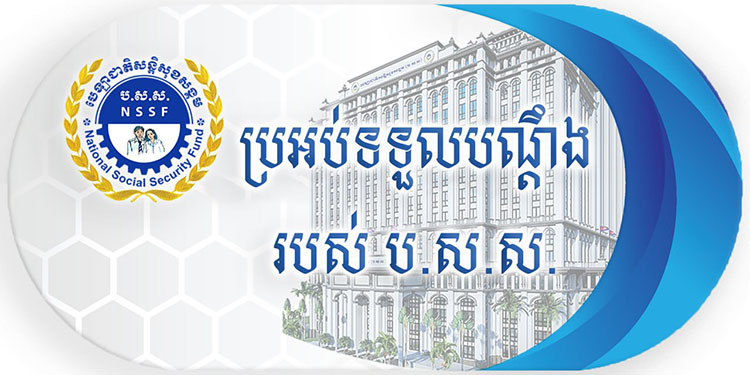Phnom Penh—On Friday morning, 17 May 2019, H.E. Pen NorakVuth, Deputy Director of the National Social Security Fund (NSSF) and Representative of H.E. Ouk SamVithyea, Delegate of Royal Government in charge as Director of the National Social Security Fund, expressed a warm welcome to all representatives of relevant ministries and institutions, nation and international organizations, trade unions, and development partners for attending the workshop to be held in Phnom Penh Hotel, Phnom Penh.
H.E. Pen NorakVuth highly appreciated that all representatives of relevant ministries and institutions, civil society organizations, and development partners always collaborate with NSSF, especially for the International Labor Organization (ILO), GRET, Agence Francaise de Development (AFD), Weave Our Future Foundation (WOF) and Social Health Protection Association (SHPA), for contributing to every activities, taking high responsibility, and providing technical and financial supports to NSSF in a bid to receive the fruitful achievements so far.
H.E. Heng Sophannarith, Director of Policy Division, said that National Social Protection Policy Framework 2016-2025 has extended the Social Health Insurance coverage to the family member of the current NSSF member in both formal and informal economy.
Partly, referring to Prakas No. 404 on the Implementation of Health Care Scheme through Health Equity Fund System for Informal Workers and Provision of Additional Allowance for Female Workers When Delivery, NSSF is responsible for registering workers in informal economy, whereas service provision and payment are borne by Ministry of Health. Furthermore, NSSF is in charge of distributing the additional allowance of the Royal Government to postnatal workers.
Overall, another additional objective of this work shop today is about the coverage extension to encourage any informal workers who are not under the Health Equity Fund of the Ministry of Health to register for receiving benefits. For the first step, this project aims to cover domestic workers and Tuk Tuk drivers in Phnom Penh. Additionally, for the next step, the construction workers will be insured.


























